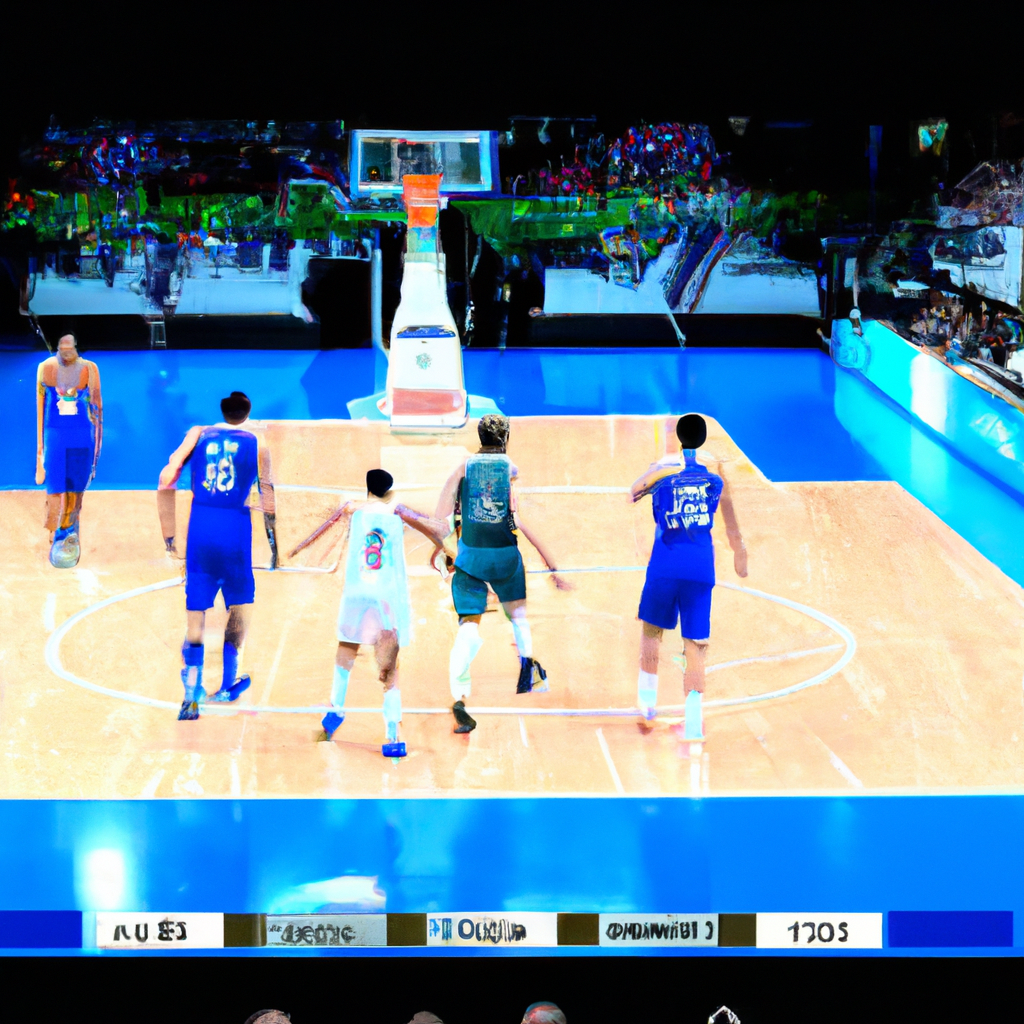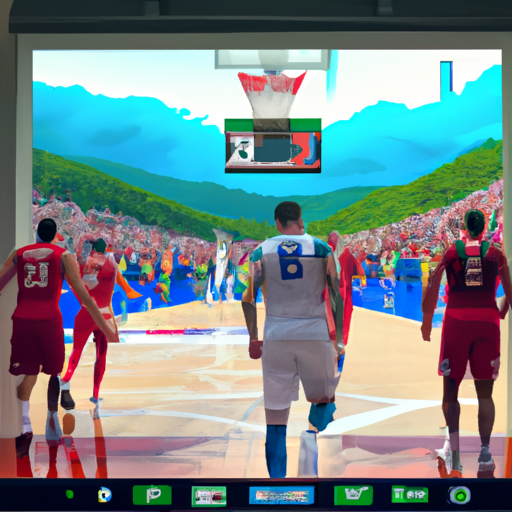Gilas shown the door at home, bows to Italy in dismal FIBA World Cup campaign

Reasons behind Gilas’ disappointing performance in the FIBA World Cup
Gilas Pilipinas, the Philippine national basketball team, suffered a heartbreaking defeat on their home soil as they bowed out of the FIBA World Cup with a dismal performance against Italy. The loss marked the end of a disappointing campaign for the team, leaving fans and analysts wondering what went wrong.
One of the main reasons behind Gilas’ underwhelming performance in the tournament was the lack of preparation time. Unlike other teams who had months to train and build chemistry, Gilas had to deal with a compressed schedule due to conflicts with the PBA (Philippine Basketball Association) season. This limited preparation time undoubtedly affected the team’s ability to develop a cohesive playing style and build the necessary chemistry on the court.
Another factor that contributed to Gilas’ struggles was the absence of key players. Several key members of the team were unable to participate in the tournament due to various reasons, including injuries and personal commitments. The absence of these players, who were expected to provide leadership and contribute significantly on both ends of the court, left a noticeable void in the team’s lineup.
Furthermore, Gilas faced tough competition in their group, which included powerhouses like Serbia and Italy. These teams boasted a wealth of talent and experience, making it even more challenging for the Philippine team to secure victories. The level of competition in the FIBA World Cup is incredibly high, and any team that underestimates their opponents is bound to suffer the consequences.
In addition to the tough competition, Gilas also struggled with their shooting efficiency throughout the tournament. Poor shooting percentages from both the field and the free-throw line plagued the team, preventing them from capitalizing on scoring opportunities. This lack of offensive firepower put additional pressure on the team’s defense, as they were unable to keep up with the scoring output of their opponents.
Another aspect that hindered Gilas’ performance was their lack of size and physicality compared to other teams. In a tournament where size and strength play a significant role, Gilas often found themselves outmatched in the paint. This disadvantage made it difficult for them to secure rebounds, protect the rim, and establish a dominant presence inside the key.
Lastly, the mental aspect of the game played a crucial role in Gilas’ disappointing campaign. The pressure of playing on home soil, coupled with the high expectations from fans and media, seemed to weigh heavily on the team. This pressure may have affected their confidence and decision-making on the court, leading to costly mistakes and missed opportunities.
In conclusion, Gilas Pilipinas’ disappointing performance in the FIBA World Cup can be attributed to several factors. The lack of preparation time, the absence of key players, tough competition, poor shooting efficiency, lack of size and physicality, and the mental pressure all played a part in the team’s struggles. While it is undoubtedly a disappointing outcome for the team and their fans, it is essential to acknowledge the challenges they faced and use this experience as a learning opportunity for future tournaments. With proper planning, preparation, and adjustments, Gilas can bounce back stronger and aim for better results in the future.
Analyzing the impact of Gilas’ loss on Philippine basketball

Gilas Pilipinas, the Philippine national basketball team, suffered a devastating loss on their home court as they bowed out of the FIBA World Cup campaign against Italy. The defeat not only marked the end of their journey in the tournament but also raised questions about the impact it would have on Philippine basketball as a whole.
The loss to Italy was a bitter pill to swallow for Gilas and their fans. The team had high hopes of making a strong showing in front of their home crowd, but unfortunately, they fell short. The defeat highlighted the challenges that the team faced throughout the tournament, including a lack of size and experience compared to their opponents.
One of the immediate impacts of Gilas’ loss is the disappointment felt by the Filipino basketball community. The team had become a symbol of national pride, and their defeat was a blow to the collective spirit of the nation. Fans had rallied behind Gilas, hoping for a deep run in the tournament, and their early exit left many feeling deflated.
Beyond the emotional impact, the loss also raises questions about the state of Philippine basketball. The defeat highlighted the need for improvements in various aspects of the game, including player development, coaching strategies, and overall infrastructure. It exposed the gaps in talent and resources that exist between the Philippines and basketball powerhouses like Italy.
One area that needs attention is player development. While the Philippines has produced talented basketball players in the past, there is a need for a more systematic approach to nurturing young talent. This includes investing in grassroots programs, providing better training facilities, and creating opportunities for players to gain international exposure. The loss to Italy serves as a wake-up call for the basketball authorities in the country to prioritize these areas.
Coaching strategies also came under scrutiny during Gilas’ campaign. The team struggled to find a consistent game plan that could match up against their opponents. There were instances where the team seemed overwhelmed by the speed and physicality of their opponents, highlighting the need for better preparation and tactical adjustments. The loss to Italy should prompt a reevaluation of coaching methods and the selection of coaches who can adapt to the international game.
Furthermore, the defeat exposed the need for improved infrastructure in Philippine basketball. The lack of adequate training facilities and resources puts the country at a disadvantage when competing against teams with better resources. Investing in state-of-the-art facilities and providing support for basketball programs at all levels will help bridge the gap and enhance the competitiveness of Philippine basketball on the global stage.
While the loss to Italy was undoubtedly disappointing, it should serve as a catalyst for positive change in Philippine basketball. The defeat has shed light on the areas that require improvement and has sparked discussions about the future of the sport in the country. It is an opportunity for basketball authorities, coaches, and players to come together and work towards a stronger and more competitive national team.
In conclusion, Gilas’ loss to Italy in the FIBA World Cup campaign has had a significant impact on Philippine basketball. It has highlighted the need for improvements in player development, coaching strategies, and infrastructure. The defeat serves as a wake-up call for the basketball community to address these areas and strive for a more competitive future. While the loss was disappointing, it should be seen as an opportunity for growth and a chance to elevate the sport in the Philippines.
Exploring potential changes and improvements for Gilas in future international competitions
Gilas Pilipinas, the Philippine national basketball team, recently suffered a disappointing exit from the FIBA World Cup, losing to Italy in a dismal campaign on home soil. As the dust settles on their early departure, it is crucial to reflect on the team’s performance and explore potential changes and improvements for future international competitions.
One of the key areas that Gilas needs to address is player development. While the team boasts some talented individuals, there is a need for a more systematic approach to nurturing young talents and providing them with the necessary exposure and experience. This could involve establishing a comprehensive youth development program that focuses on identifying and training promising players from a young age.
In addition to player development, Gilas should also consider strengthening its coaching staff. A well-qualified and experienced coaching team can make a significant difference in the team’s performance. It is essential to have coaches who understand the international game and can devise effective strategies to compete against top-tier teams. Investing in the recruitment and training of top-notch coaches could greatly benefit the team’s future campaigns.
Furthermore, Gilas should prioritize building a strong support system for the players. This includes providing them with the necessary resources, facilities, and medical support to ensure their physical and mental well-being. A well-equipped training center and access to sports science professionals can help the players reach their full potential and minimize the risk of injuries. Additionally, providing psychological support and counseling services can help the players cope with the pressures of international competition.
Another aspect that Gilas needs to address is the team’s style of play. While the Philippine brand of basketball, known for its fast-paced and physical nature, has its merits, it is crucial to adapt to the evolving international game. Studying and incorporating modern basketball strategies, such as effective ball movement, three-point shooting, and defensive schemes, can help Gilas compete more effectively against teams with different playing styles.
Moreover, Gilas should focus on fostering a culture of teamwork and unity within the team. Building strong chemistry and camaraderie among the players can enhance their on-court performance and resilience in challenging situations. This can be achieved through team-building activities, regular training camps, and fostering a positive and supportive environment.
Additionally, Gilas should explore opportunities for international exposure and competition. Participating in high-level tournaments and friendly matches against top basketball nations can provide invaluable experience and help the team gauge its progress. This exposure can also attract the attention of scouts and potential sponsors, which can further support the team’s development.
Lastly, it is crucial for Gilas to receive consistent and sustained support from the government, basketball associations, and corporate sponsors. Adequate funding and resources are essential for the team’s success in international competitions. This support should not be limited to the national team but should also extend to grassroots basketball programs, ensuring a continuous pipeline of talent for future campaigns.
In conclusion, Gilas Pilipinas’ disappointing performance in the FIBA World Cup should serve as a wake-up call for the team and its stakeholders. By focusing on player development, strengthening the coaching staff, building a strong support system, adapting the playing style, fostering teamwork, seeking international exposure, and receiving sustained support, Gilas can improve its chances of success in future international competitions. With the right changes and improvements, the Philippine national basketball team can regain its competitive edge and make the nation proud on the global stage.

